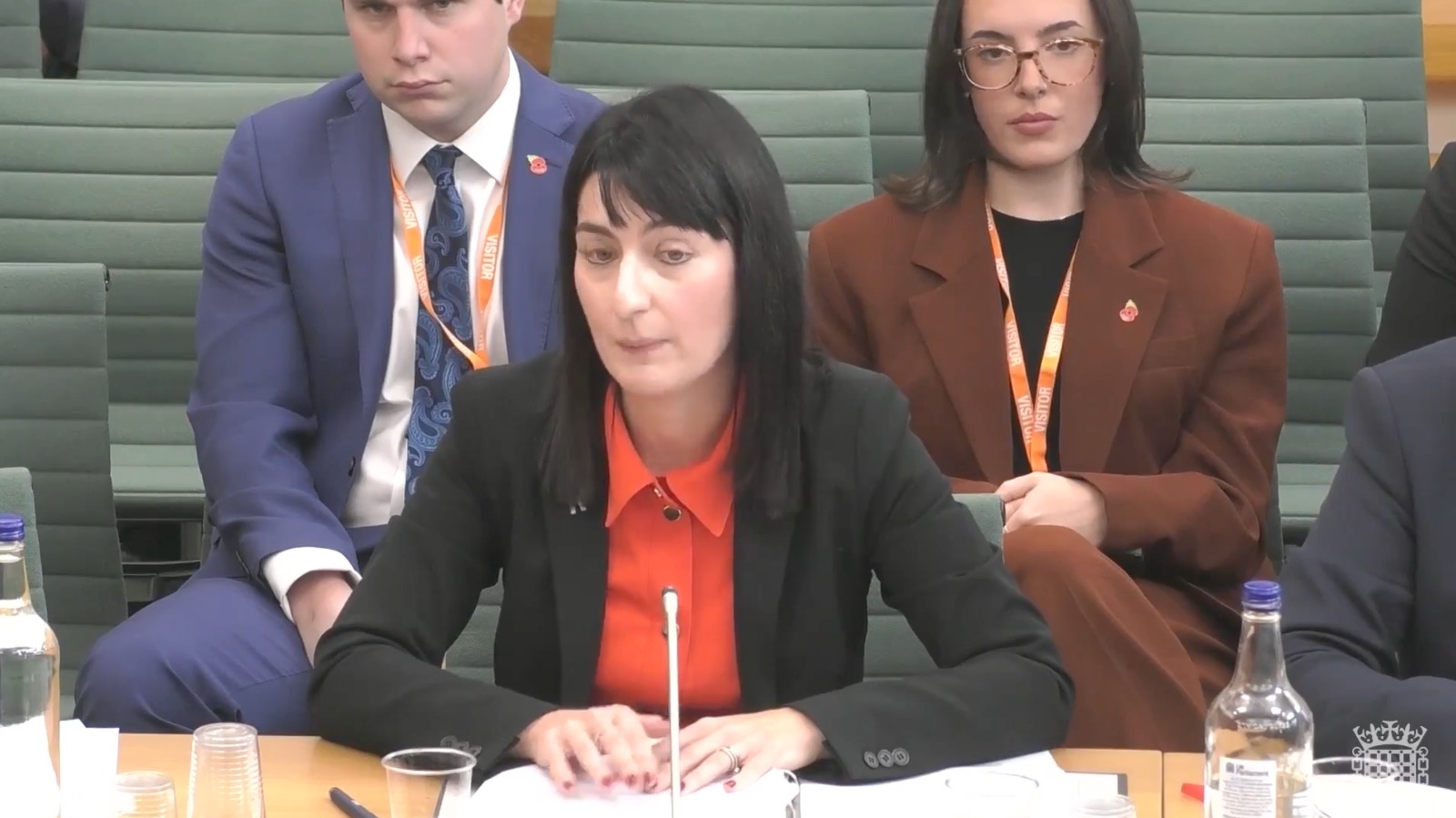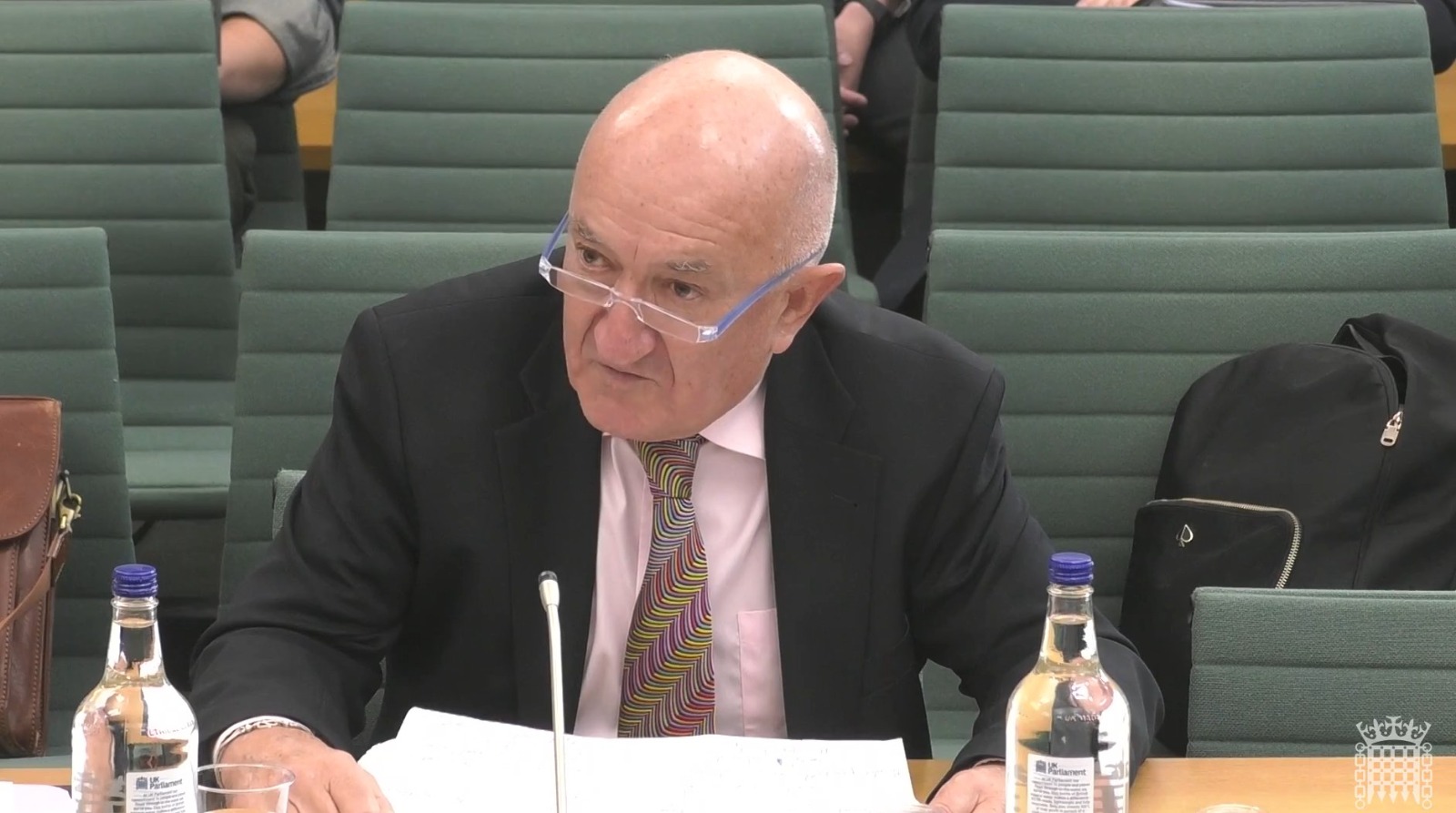Commons’ Treasury Committee examines how gaming should be taxed
Stephen Hodgson, the chair of the tax committee at the Betting and Gaming Council. Photo via House of Commons
Gibraltar is “a centre of excellence” for gaming that had pioneered regulation for a sector that contributed heavily to the UK economy, the House of Commons Treasury Committee was told on Tuesday, as sector representatives cautioned against any increase in UK gaming taxes.
The committee was hearing evidence on how gambling should be taxed in the UK as it looked at some of the decisions facing the UK Chancellor in her 2025 Budget.
Any increase in UK taxes could have a significant knock-on impact on gaming companies licensed in Gibraltar but with UK-facing business.
The gaming sector accounts for 30% of the Rock’s GDP and last year accounted for around 50% of corporate tax receipts and 3,400 jobs,
The discussion in the UK is being closely followed by Nigel Feetham, Gibraltar’s Minister for Justice, Trade and Industry, who this week met with Dan Tomlinson, Exchequer Secretary to the UK Treasury.
Mr Feetham said the discussion was “very constructive”.
In the Commons on Tuesday, MPs wanted to understand Gibraltar’s role in the UK gaming sector.
Responding to questions, Stephen Hodgson, the chair of the tax committee at the Betting and Gaming Council, outlined the development of Gibraltar’s gaming sector since the 1990s, adding the Rock was one of the first jurisdictions in the world to offer a regulatory regime for the industry.
He said that since its early beginnings, the sector had “grown up’ and Gibraltar “…has now become essentially an international centre of excellence for this kind of activity.”
He said UK-facing businesses in Gibraltar were dual licensed and paid UK gambling taxes, dispelling too “myths” about VAT.
“The reality is VAT isn't applied to betting and gaming because excise duties are applied instead, and that is the situation in almost all of the world,” he said.
He addressed too concerns about Gibraltar’s lower level of corporation tax.
“The businesses in this industry do have operations all over the world,” Mr Hodgson said.
“What we tend to find, because the UK has been a global success story in terms of betting and gaming, is that we have lots of businesses headquartered in the UK paying UK corporation tax, but also having operations in a number of other jurisdictions like Gibraltar, where they will pay local corporation tax in those places.”
“But what you'll also find is that because these businesses, these subsidiaries in other jurisdictions, tend to be part of a bigger global group, there will also be intercompany activity which results in more corporation tax being paid in the UK because they're part of a multinational family.”

Grainne Hurst, the chief executive of the Betting and Gaming Council, said she believed the sector was already properly taxed and that any increases in UK taxes could put up to 40,000 jobs at risk and drive people to the black market.
“So any further tax rises now will put jobs at risk, they will put shops at risk, they will put sports sponsorship at risk, which isn't something that the industry wants to see happen and that's why we're making the case to the Treasury,” she said.
But the committee heard too from critics of the gaming sector.
They included the former boss of Paddy Power, who called for higher gambling taxes to deter bookmakers from tactics that draw punters into more addictive games, as he said profits across the sector were “exploding”.
Stewart Kenny, who co-founded the betting firm but has become a critic of the industry’s tactics since retiring, also accused firms of “scaremongering” over warnings about gambling tax hikes.
Mr Kenny told MPs on the Treasury Committee: “I really believe that, for the parts of the industry that are the most harm, that you tax higher to disincentivise the bookmakers from sucking you from the sports book into the online casino.”
He said betting firms are drawing people “from the least-addictive product to the most-addictive product” by handing out free spins on their online casino when they make an account to bet on sports.
This was a bigger problem for younger people whose lives could be “destroyed” by problem gambling, he said.

Mr Kenny also rejected claims from gambling firms that higher taxation would affect jobs in the sector and drive more people towards black market betting.
“It is scaremongering,” he told the MPs.
“I was using exactly the same arguments 25 years ago… and betting businesses have exploded in profits.”
“I do not see any reason why betting shops or people employed in betting shops should go down because of the tax rises,” he said, adding that he does not foresee punters getting a “bad deal” as a result.
Parent firm Flutter, which also owns Betfair and Sky Bet, told Paddy Power staff earlier this month it was shutting 57 of their betting shops in the UK and Ireland, putting almost 250 workers at risk.
The US-listed company blamed the closures on “increasing cost pressures and challenging market conditions”.
A spokesman for the UK and Ireland also warned that a “higher gambling tax could have a significant impact on jobs and investment across the industry and drive more customers into open arms of unlicensed operators on the illegal, black market”.
William Hill owner Evoke also recently said it was considering “further shop closures” if it is hit by tax increases in the UK.
On Monday, research commissioned by the Betting and Gaming Council found that proposed tax hikes risk the loss of 40,000 jobs and could divert £8.4 billion to the black market.
Mr Kenny, who stepped down from the board of Paddy Power nearly a decade ago, said there are still parts of the gambling industry that he believes can “flourish”.
“I was part of the system, I have huge regrets, but I’m still a believer in the gambling industry being part of the entertainment mix,” he said.
He said disincentivising companies to entice punters towards “highly addictive” online casinos could help them “get back to marketing horse racing and betting on normal events”.
Theo Bertram, director of the Social Market Foundation, which argues the gambling industry should be taxed more, told MPs activities such as horseracing should be protected.
During the committee session he said: “Don’t let the gambling industry pretend to you that sitting on your phone, being addicted to that app and losing thousands of pounds is somehow putting more people in your constituency into work.”
PA contributed reporting for this article.









